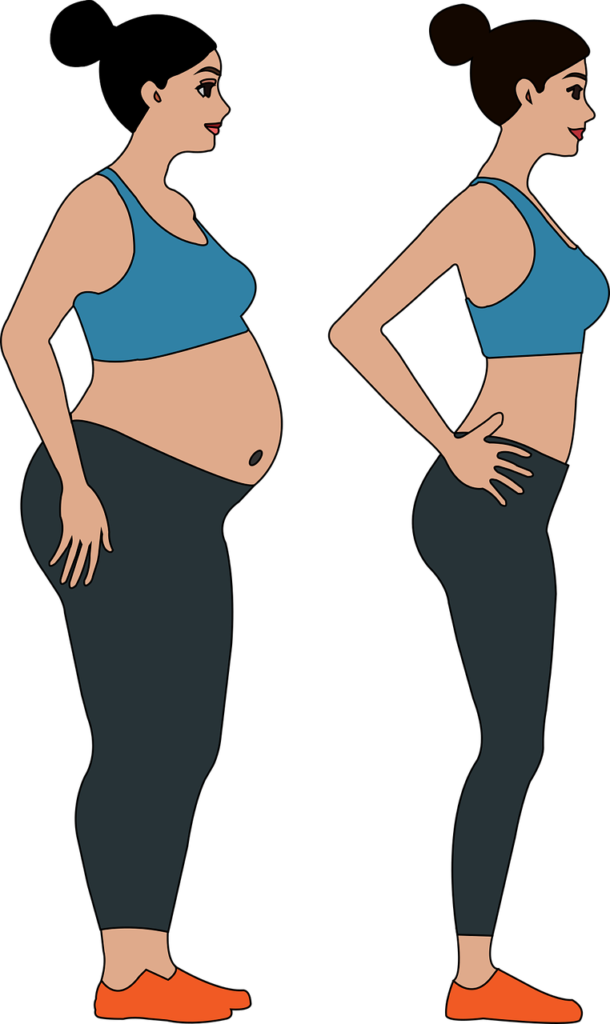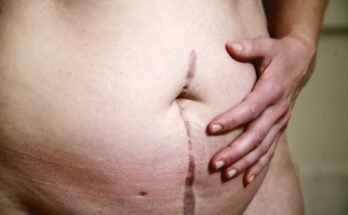Most people seeking gastric sleeve surgery need to understand what happens in both the preoperative period and after their procedure. Multiple individuals commonly ask about post-gastric sleeve weight loss timeline and expected weight reduction following the operation. Your outcomes from the procedure are directly influenced by your life decisions.
To make the most of your gastric sleeve weight loss before and after, follow these 10 essential tips. The steps lead to quicker weight loss and maintain health throughout while maintaining permanent weight loss for good.
Read More About Weight Loss Here
1. Get Ready Before Surgery
Your gastric sleeve weight loss before and after the journey starts before the procedure. The doctor provides you with a pre-operation diet that serves two purposes: liver reduction and body preparation.
This diet usually includes:
- High-protein shakes
- Low-carb vegetables
- Lots of water
The safety of your surgical procedure improves when you follow the pre-operative diet while getting used to eating smaller meals
2. Do You Lose Weight Immediately After Gastric Sleeve?
Yes, but the first few weeks of your gastric sleeve weight loss before and after the journey are mostly water weight loss. Since the stomach size has decreased you end up consuming very little food.
The majority of persons shed 10-15 pounds within the first two weeks after surgery. The fat burning process begins after this period. Following your doctor-provided plan will assist you to keep losing weight.
3. Follow Your Post-Op Diet Step by Step

Your stomach requires healing time after surgery completion. That’s why your gastric sleeve weight loss before and after the journey includes different diet phases.
The post-op diet includes:
- Clear liquids (first few days)
- Full liquids (protein shakes, soups)
- The diet plan includes soft proteins as well as mashed vegetables.
- Soft foods (scrambled eggs, fish)
- Regular foods (small, healthy meals)
You should avoid hurrying any stage of the recovery process because it may result in uncomfortable side effects and medical complications. Always stay patient and strictly follow the presented instructions.
4. Stay Hydrated Without Drinking Too Fast
Drinking enough water is key to gastric sleeve weight loss before and after surgery, as well as healing. The lack of water intake leads to dizziness together with fatigue and constipation as side effects.
Drinking water should be done slowly instead of during meals or in large quantities because it hampers digestion processes. Regular water consumption during the day should reach a minimum of 64 ounces.
5. Know Your Expected Weight Loss After Gastric Sleeve

Your gastric sleeve weight loss before and after will follow a pattern. Most individuals achieve these results in gastric sleeve weight loss.
- First Month: 10-20% of excess weight
- Three Months: 30% of excess weight
- Six Months: 50% of excess weight
- One Year: 60-70% of excess weight
The ability to track your weight management improves your determination level and enables the modification of your health behaviors.
6. Make Protein a Priority
Protein is essential for gastric sleeve weight loss before and after surgery, as well as muscle maintenance. It helps with:
- Healing after surgery
- Preventing muscle loss
- Keeping you full longer
The recommended daily protein intake for gastric sleeve success comes from combining eggs, chicken, fish and protein shakes in amounts of 60 to 80 grams. Empty carbs should be avoided while choosing only nutrient-rich foods.
7. Start Moving—Even a Little Helps
Exercise enhances fat reduction maintains energy levels and develops muscle strength. Begin light physical activities after your surgery but initiate them at the first recovery interval.
- Walk for 5-10 minutes a day
- Increase to 30 minutes daily
- Begin strength training only after receiving medical approval from your doctor.
Moving daily helps speed up your gastric sleeve weight loss before and after surgery and prevents complications.
8. Control Emotional Eating

Emotional eating can slow down your gastric sleeve weight loss before and after surgery. Eating during emotional times requires you to establish alternative habits.
Try these alternatives:
- Take a walk
- Drink tea or water
- Journal your thoughts
- Talk to a friend
Obtaining support through therapy or support groups will help people who battle with emotional eating.
9. Avoid Drinking with Meals
Drinking fluids alongside your food makes your stomach empty quickly thus causing an early sensation of hunger. Fast food consumption together with many liquids will make your stomach empty too quickly leading to excessive eating that negatively affects your weight loss progress.
To stay full longer and support your gastric sleeve weight loss before and after the journey, wait 30 minutes after eating before drinking anything.
10. Stay Consistent for Long-Term Success
The surgical procedure serves as a tool instead of a method to bypass weight loss efforts. Sustaining permanent weight loss depends on maintaining good health practices after the operation.
That means:
- Planning meals ahead of time
- Staying active every day
- Following up with your doctor
- Building a strong support system
The procedure only creates weight loss outcomes through ongoing commitment instead of working independently.
FAQs
How quickly will I lose weight after gastric sleeve?
During the initial month, most individuals achieve losses between 10-20 pounds. The weight reduction process maintains a steady pace after the first weight-loss period. Most patients reach 50 percent excess weight loss during the sixth month of the procedure.
How much weight can you lose in a month with the gastric sleeve?
A typical patient can expect to lose between 10 and 15 pounds during each month of their first six months. After the first year the weight loss pace decreases yet maintaining wholesome lifestyle patterns enables people to sustain their weight loss achievements.
Can I fly 3 days after gastric sleeve?
Doctoral recommendations advise waiting before taking air travel. Traveling by plane is harmful for postoperative body recovery because it raises the chances of developing blood clots. Passengers should delay traveling by airplane for a minimum of two weeks after their illness.
How painful is a gastric sleeve?
The majority of surgical pain is limited to moderate intensity which patients experience following surgery. Pain can be handled through medications and becomes much better after one week of treatment. Full recovery takes 4-6 weeks.
Conclusion
Your gastric sleeve weight loss before and after depends on your commitment to healthy habits. The steps alongside patience and regular progress evaluation will help you achieve your goal. Your new, healthier life starts now!




